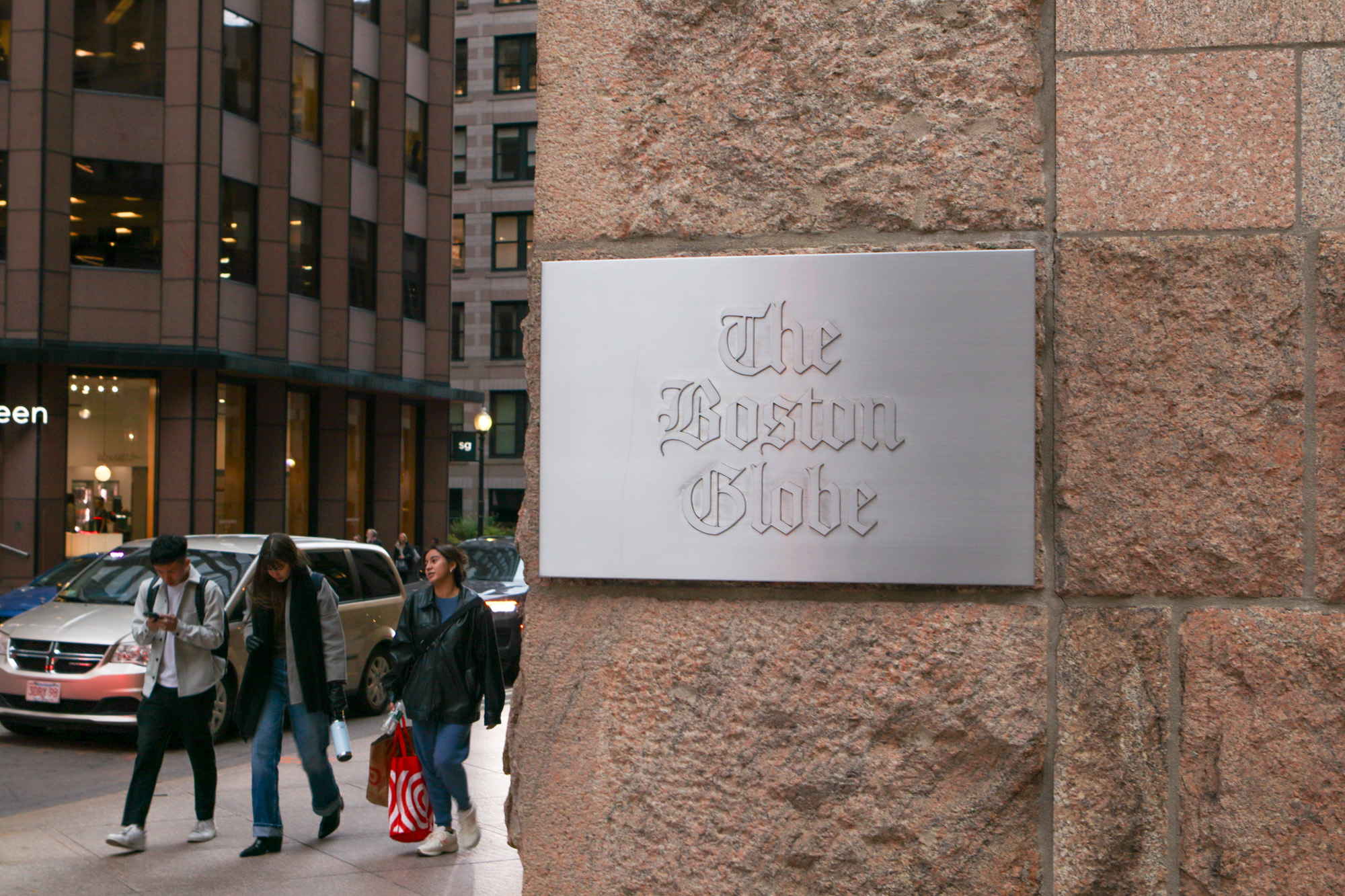During an election year, newspapers’ opinion pages usually endorse presidential candidates. However, during this election, more news organizations than ever are opting-out of an official endorsement.

In October, the Los Angeles Times announced it would not be endorsing a candidate during the 2024 Presidential Election. Less than two weeks later, The Washington Post followed suit.
Locally, the Boston Globe made the decision to endorse Democratic candidate and Vice President Kamala Harris. The first presidential endorsement the Globe made was Hubert Humphrey in 1968.
“Globe readers want to see [that] the news organization stands for something and stands for something that [is] really vitally important in this moment,” said Brian McGrory, chair of the journalism department at Boston University and former editor of the Boston Globe. “Many readers like to feel some sort of common cause with the news organization they’re reading… having the opinion pages reflect what they likely believe in is pretty important to them.”
Endorsing candidates has a longstanding history within the newspaper industry because it allowed wealthy owners to exercise political influence through the media, Dan Kennedy, a professor of journalism at Northeastern University, said.
Early American newspapers were generally directly affiliated with a political party and the idea of an impartial news outlet is fairly new, according to Kennedy.
“Rich men, and they were almost always men, bought newspapers in large measures so that they could get involved in politics,” Kennedy said.
In the late 19th century, newspaper publishing moguls William Randolph Hearst, owner of the New York Journal, and Joseph Pulitzer, owner of the New York World, exercised control over their publications to create competition with the rival newspaper. Today, the Times is owned by billionaire businessman Patrick Soon-Shiong, and The Post is owned by Amazon founder Jeff Bezos.
The decision to endorse a candidate is made by a newspaper’s editorial board, not its newsroom staff, according to Aidan Ryan, a media reporter for the Globe.
The editorial board comprises a newspaper’s opinion and editorial writers. On the other hand, newsroom reporters are expected to remain impartial by not publicly expressing their political views.
According to Kennedy, The Post and the Times’ announcements to not endorse a candidate lacked credibility because of how close they were announced to Election Day.
Unlike The Post and the Times, the Minnesota Star Tribune, which is also owned by a billionaire, Glenn Taylor, announced it would not be endorsing a candidate in August. Kennedy said the paper handled the decision in a way that was more thoughtful.
“People took them at their word because it was several months before the election, and they clearly laid out what they were doing and why,” Kennedy said. “This just seemed like, ‘well, we’re going to kill endorsements of Harris because we’re afraid of [former president Donald] Trump.’”
McGrory described Bezos’ decision as “anticipatory obedience” in a column he wrote for the Globe the day following The Post’s official announcement.
There has been a move toward non-traditional forms of voter engagement, such as Harris’ participation in popular podcasts like “Call Her Daddy” and Trump’s Youtube appearances with livestreamer Adin Ross, Ryan said. However, readers continue to turn to legacy media like the Globe because they represent “trusted brands.”
Bezos wrote an op-ed arguing that “presidential endorsements do nothing to tip the scales of an election.”
Jim Dao, the editorial page editor of the Globe, said he disagrees with newspaper endorsements having “no impact.”
The Post has lost 250,000 subscribers since its initial announcement. The loss is proof of the continuing relevance of newspaper endorsements, Dao said.
Three members of the Times editorial board have also resigned following Soon-Shiong’s decision, according to the Associated Press.
“They just were completely disrespected and hung out to dry in public, and they decided to take a stand for their integrity,” Kennedy said. “I think they deserve a lot of credit for doing that.”
Although Dao said he understands the arguments for moving away from endorsements, he does not believe a fear of angering readers is a valid reason for news outlets to stop endorsing presidential candidates.
“You can’t possibly please everybody all the time, but that’s journalism,” Dao said. “What you hope for is that, on balance, you’re consistently good enough and accurate enough and fair enough that people will come back to you.”
In addition to endorsing Harris for president, the Globe also endorsed local candidates and Massachusetts ballot initiatives.
“There was a great deal of interest in the ballot questions this year, and again, that’s because they were substantive questions,” Dao said.
The five ballot initiatives this year include authorizing the auditing of the state legislature, eliminating the MCAS standardized test graduation requirement, unionization for rideshare drivers, legalizing psychedelic substances and increasing the minimum wage for tipped workers.
“The rise of digital media in general, and social media in particular, has made the old-fashioned institution of an unsigned editorial written in the institutional voice, handed down in the voice of God… seem a bit silly in some ways,” Kennedy said.
In the end, McGrory said news organizations are providing readers with high-quality information so they can make informed decisions during an election that has high importance.
“The best way a news organization can serve its audience is by just providing the fullest, most interesting news report humanly possible,” McGrory said.
















































































































